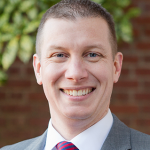In a recent post, we reviewed the biblical storyline, which gives us the broad contours of God’s design for our shared human life, sin’s corruption of his design and Christ’s redemption that eventually will heal the corruption.
Now let’s apply these basic truths to a specific question that the Bible does not address directly: How should Christians — who live in a 21st-century democratic republic populated by diverse religions and ideologies, and characterized by political incivility and injustice — act and speak in the public square?
More specifically, should we bring our religious beliefs into the public square or should we leave them at home?
One of the foremost political thinkers of the late 20th century was John Rawls, who taught at Harvard University. His most influential book, A Theory of Justice, addresses many of the questions we are asking.[1] Rawls argues that American citizens should engage in vigorous public discussion about important political issues but should leave their religious beliefs out of it. He suggests that we hide behind a “veil of ignorance.” We should pretend to be ignorant of our own religious convictions (and of other things that could prejudice us, such as our race or socioeconomic class). Rawls thinks that his view will help citizens achieve the most just outcome.
Rawls’ vision for a naked public square is both impossible and unhelpful.
In my view, Rawls’ vision for a naked public square is both impossible and unhelpful. All people are religious, and their religion radiates outward into every part of their lives. Rawls’ religion was political liberalism, and it deeply influenced his public square interaction. Our religion is Christianity, and it will — and should — influence our interactions in the public square. As believers, we affirm our Christian convictions as the very things that should help us create a good and just society. We should employ those convictions appropriately as we seek to contribute to the common good.
Many prominent Christian thinkers, such as Richard John Neuhaus, Lesslie Newbigin and John Howard Yoder, have rejected Rawls’ approach in favor of a view that recognizes the need for believers to bring their convictions to the public square. Each of those thinkers offered valuable insights that will prove helpful for Christians who wish to chart a path of Christian faithfulness in our 21st-century context.
Our Christian convictions [are] the very things that should help us create a good & just society.
Perhaps you’re wondering how. What does it look like for us retain our Christian convictions as we engage politics? In a future post, we will tackle this question head-on.
This post is adapted from Dr. Ashford’s new book, Every Square Inch. Details>>
[1] John Rawls, A Theory of Justice, rev. ed. (Cambridge, MA: Belknap, 1999).





No comments have been added.